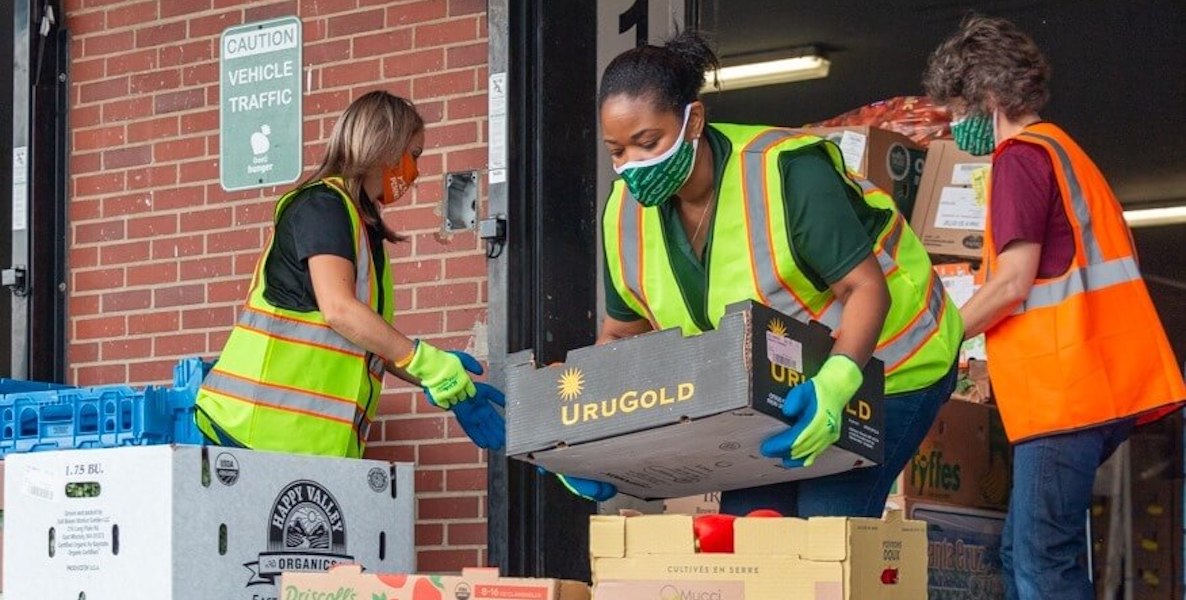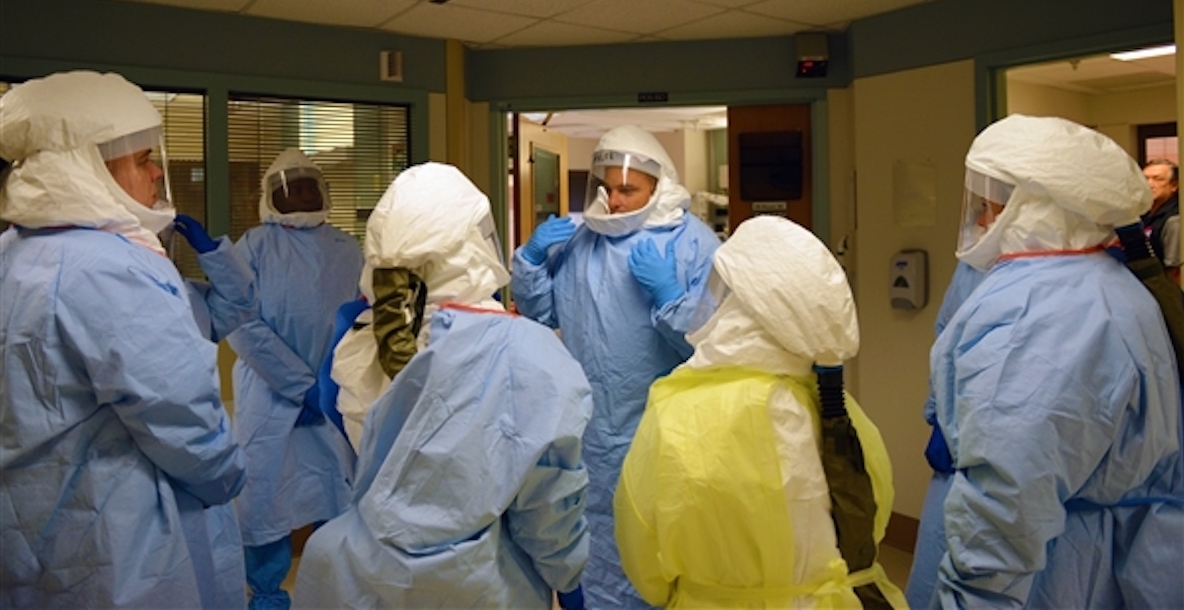In case you haven’t checked today, there are 67 confirmed coronavirus cases in Philadelphia—up from 44 yesterday and just nine this past Monday.
As the number of cases blooms, healthcare workers across the city are doing their best to maintain safe conditions for their patients, themselves and their families—and to stay sane on the front lines of the pandemic. The least we can do is heed their advice.
We checked in with a local emergency room doctor—who is remaining anonymous as health care workers are being discouraged from posting online or talking publicly—to find out what they need the rest of us to know and do as the coronavirus hits Philly hard.
Katherine Rapin: How is your job different than it was a month ago?
MD: The practice that I have known is totally different. We’re sectioning off one ![]() part of the emergency room to be involved with respiratory/COVID-19 concerns and the other half is sort of working as business as usual. So that totally changes our workflow. We now have so much more screening to go through to ensure that the people that are coming in don’t meet that criteria that we’re looking for.
part of the emergency room to be involved with respiratory/COVID-19 concerns and the other half is sort of working as business as usual. So that totally changes our workflow. We now have so much more screening to go through to ensure that the people that are coming in don’t meet that criteria that we’re looking for.
My own general anxiety is higher because now I’m looking at everybody as possibly carrying the COVID0-19 strain. We also had to really start taking care of ourselves, because once healthcare workers start getting sick, then obviously the system can break down when we have limited staff.
Really, try to eliminate your contact with people and stay home as much as possible…if I could sum it all up: please, God, listen to that.
I like to go home and just stop talking about the coronavirus, because for 12 straight hours, that’s pretty much what we talk about. New information comes daily if not hourly, so you’re constantly updating what you’re doing. Something you’re doing maybe that morning is not what you’re doing in the afternoon. It’s very much an environment that’s in flux compared to before this all happened. Then, you had your protocols and you knew what to expect, but now it’s an ever-changing environment.
KR: You mentioned protecting yourself; what does that look like in practice?
MD: We have the necessary equipment to protect ourselves at the moment. [Elsewhere, doctors are worrying about a shortage of gear.]
Given that the suspicion is that COVID-19 is an airborne virus, it’s a little different than the flu. The flu we’d put someone on a contact droplet precaution, meaning that you’re more concerned about someone sneezing, the droplets getting on something and spreading that way. When it’s airborne, it’s concerning because the virus can stay suspended. So just by being in the proximity of the patient you’re able to contract it.
![]() Definitely the N-95 mask is an essential part of the equipment. (Before that’s something I rarely wear, unless someone had tuberculosis or something.) Definitely gowns, gloves, eye goggles, and then we’re also wearing something called a PAPR—a powered air-purifying respirator—which is like a space suit you would see in Contagion. It’s like a hood that goes over your head and blows air onto your face. It keeps any sort of particles away from your face.
Definitely the N-95 mask is an essential part of the equipment. (Before that’s something I rarely wear, unless someone had tuberculosis or something.) Definitely gowns, gloves, eye goggles, and then we’re also wearing something called a PAPR—a powered air-purifying respirator—which is like a space suit you would see in Contagion. It’s like a hood that goes over your head and blows air onto your face. It keeps any sort of particles away from your face.
KR: And you’re wearing that when you’re coming into contact with someone you suspect has the virus? Or a confirmed patient?
MD: Basically as it stands anybody that’s having any respiratory systems whatsoever, my suspicion is high that person may have the virus.
From what I gather there haven’t been any positives that have come through our department yet, but that information could change because of how long it takes to get the results back. I know some hospitals are developing more in house rapid tests, but where I work it’s still sent off and it’s a five day turn around. It’s not like the flu where you can get the results in an hour or so.
The parameters for testing have changed a lot in the past week; last week I was there for five days and there were about 50-100 tests sent out.
Testing in ERs has not hit crazy proportions yet because people are either doing what their doctors are telling them, or staying at home. So the need to do mass testing in the ER is not there. I don’t know if that changes when whatever could possibly happens and we could be testing a lot more people.
KR: We’re all scared and stressed, but you are in the scariest and most stressful position—how are you and other health care workers coping with this?
MD: I come home and I stand outside and I take off all my clothes and put them in a bag. That bag goes downstairs and that goes in another bag and I wash everything on hot. It’s caused a lot of stress. I try not to check the news. Because pretty much every hour there’s something coming out.
I have a couple days off now, so I’m just trying to stay busy and do hobbies,![]() trying to do relaxing things. I like to exercise and take the dogs out, reading, trying to get to sleep early—that’s what’s working for me. I have been sending a lot of emails out with suggestions on how people can do mindfulness; some museums are giving virtual tours. Anything that can take your mind off of what’s going on.
trying to do relaxing things. I like to exercise and take the dogs out, reading, trying to get to sleep early—that’s what’s working for me. I have been sending a lot of emails out with suggestions on how people can do mindfulness; some museums are giving virtual tours. Anything that can take your mind off of what’s going on.
You get to work, all the new stuff happens, your anxiety levels are high, things are happening all day, you have all this stuff you’re working in; it’s hot; it’s uncomfortable. But by the late afternoon, you have to start joking around or something. You burn out on your ability to be on-edge all the time. We’re definitely laughing more, trying to distract ourselves.
KR: How can Philadelphians help healthcare workers right now?
MD: Obviously the biggest thing is heeding the warnings to remain at home and limit unnecessary exposure. I walk to work and last weekend bars are full, restaurants are full (that was before the restriction on those businesses), people are out. I think some people are treating it like it’s an extended spring break or a holiday or something. The primary thing to do is limit your unnecessary exposure, do the six-feet social distancing.
What we’re trying to do is to prevent the hospital system from getting overwhelmed. And the more people respect that and utilize telehealth and call primary doctors and stay home, the more likely our system will be able to cope with what’s going on.
If you do feel symptoms, obviously if it’s a medical emergency where you can’t breathe, call 911, but if you’re having symptoms or general concerns, call your primary care doctor first. What we’re trying to do is to prevent the hospital system from getting overwhelmed. And the more people respect that and utilize telehealth and call primary doctors and stay home, the more likely our system will be able to cope with what’s going on. And the longevity of the quarantines will be decreased if people are listening to what’s being said, respecting what’s being said.
I worked through ebola and that was scary, but this is definitely scarier than that. Ebola was much more controllable; it thrives in a certain climate with certain living conditions. We’d screen people and ask have you travelled to West Africa and for most people the answer was no, they hadn’t ever been to West Africa.
Now, travel screenings don’t really do anything. You can’t say have you been to China or Turkey, now it’s like have you been to Montgomery County or New York?
We’re lucky to have hospitals that are ahead of the game in comparison to a lot of other places in America. But the generalized lack of response has really put the stress into the situation.
Really, try to eliminate your contact with people and stay home as much as possible…if I could sum it all up: please, God, listen to that.
Interview has been edited and condensed.





